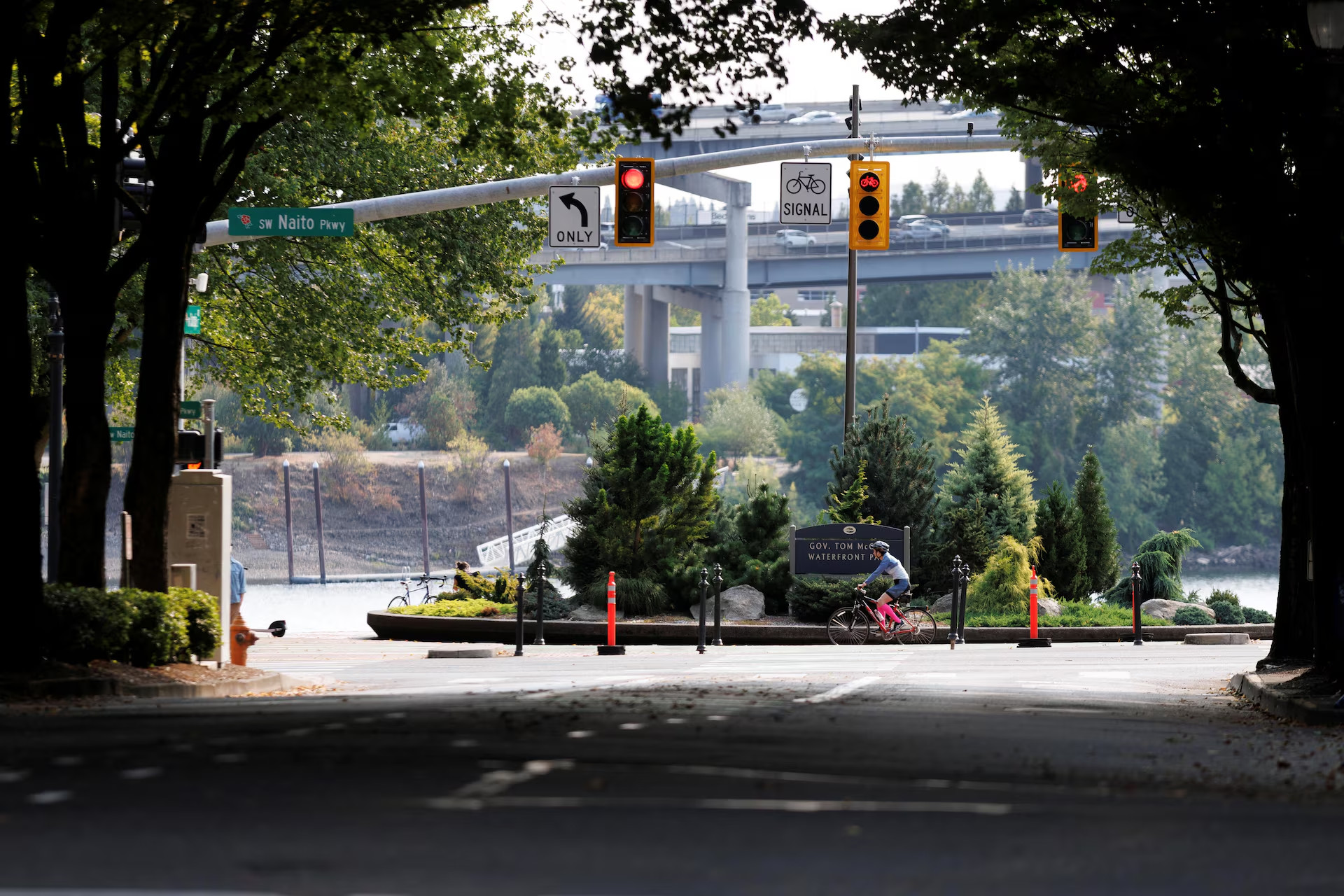WASHINGTON, Sept. 28 (Reuters) — The Pentagon has ordered 200 Oregon National Guard troops into Portland under federal authority, following President Donald Trump’s weekend announcement that troops would be deployed to protect federal immigration facilities. The move quickly drew legal challenges from state officials and renewed questions about the scope of presidential power.
Trump Authorizes Troops With “Full Force”
On Saturday, Trump announced plans to send forces into Portland, saying they would guard Immigration and Customs Enforcement (ICE) buildings from what he called “domestic terrorists.” In a statement on Truth Social, Trump added that troops were authorized to use “full force, if necessary.”
The announcement comes as part of Trump’s broader crime crackdown in Democratic-led cities such as Los Angeles and Washington, D.C., which has prompted both protests and lawsuits.
Also Read
Oregon Pushes Back
By Sunday, Oregon Attorney General Dan Rayfield filed a lawsuit in federal court against Trump, Defense Secretary Pete Hegseth, and Homeland Security Secretary Kristi Noem, arguing that the deployment oversteps federal authority.
“Citing nothing more than baseless, wildly hyperbolic pretext — the President says Portland is a ‘war ravaged’ city ‘under siege’ from ‘domestic terrorists,’” the lawsuit stated. “Defendants have thus infringed on Oregon’s sovereign power to manage its own law enforcement activity and National Guard resources.”
Rayfield said the protests near Portland’s ICE facility have been “small and relatively contained since June,” adding: “Sending in 200 National Guard troops to guard a single building is not normal.”
Pentagon Caught Off Guard
According to six U.S. officials who spoke to Reuters on condition of anonymity, Trump’s announcement caught many at the Pentagon by surprise. “It was a bolt from the blue,” one official said, noting that the military had been focused on contingency planning for other cities such as Chicago and Memphis, not Portland.
Defense Secretary Hegseth formally signed a memo Sunday authorizing the deployment, which was later attached as evidence to Oregon’s lawsuit. The Pentagon has not commented publicly on the order.
Crime Trends Show Decline
The deployment also comes at a time when violent crime in Portland is falling, according to preliminary data. The Major Cities Chiefs Association’s Midyear Violent Crime Report showed that homicides in Portland dropped 51% in the first six months of 2025 compared to the same period last year.
Despite these figures, Trump has made crime a centerpiece of his administration since returning to office in January, often framing Democratic-led cities as unsafe and in need of federal intervention.
Echoes of 2020
The current controversy revives memories of Portland’s 2020 protests following the murder of George Floyd in Minneapolis. Demonstrations against police brutality stretched for more than 100 nights in Portland and often turned violent.
Federal agents were deployed then as well, tasked with defending federal property such as the Mark O. Hatfield U.S. Courthouse. Local leaders argued that the federal presence only escalated tensions, while Trump insisted at the time that strong enforcement was necessary to stop “anarchists.”
Questions About Use of Force
Trump’s reference to “full force” in his recent announcement has raised concerns about whether he is authorizing lethal force on U.S. soil. Traditionally, domestic deployments of U.S. troops allow the use of force only in self-defense.
Legal experts say the wording could create uncertainty both within the military and among the public, particularly given Portland’s history of confrontations between protesters and federal agents.
Local Leaders Left in the Dark
Like state officials, Portland Mayor Keith Wilson said he learned of Trump’s order through social media. City leaders criticized the lack of communication, noting that federal intervention without coordination risks inflaming rather than easing tensions.
“This unpredictability is tough for everybody,” one Oregon official said. “It erodes trust between local governments and Washington.”
Rising Tensions Nationwide
The Portland deployment comes amid broader unrest in U.S. cities as Trump intensifies his immigration crackdown. Just days ago, a shooting at an ICE facility in Dallas left one detainee dead and two others wounded, adding to tensions over detention policies.
With federal troops already active in D.C. and plans underway for Chicago and Memphis, Portland has become the latest flashpoint in the administration’s escalating law-and-order campaign.
Whether Oregon’s lawsuit will succeed in halting the deployment remains uncertain. For now, however, the presence of federally controlled National Guard troops is set to test once again how far the federal government can intervene in a city that insists it is not at war.












